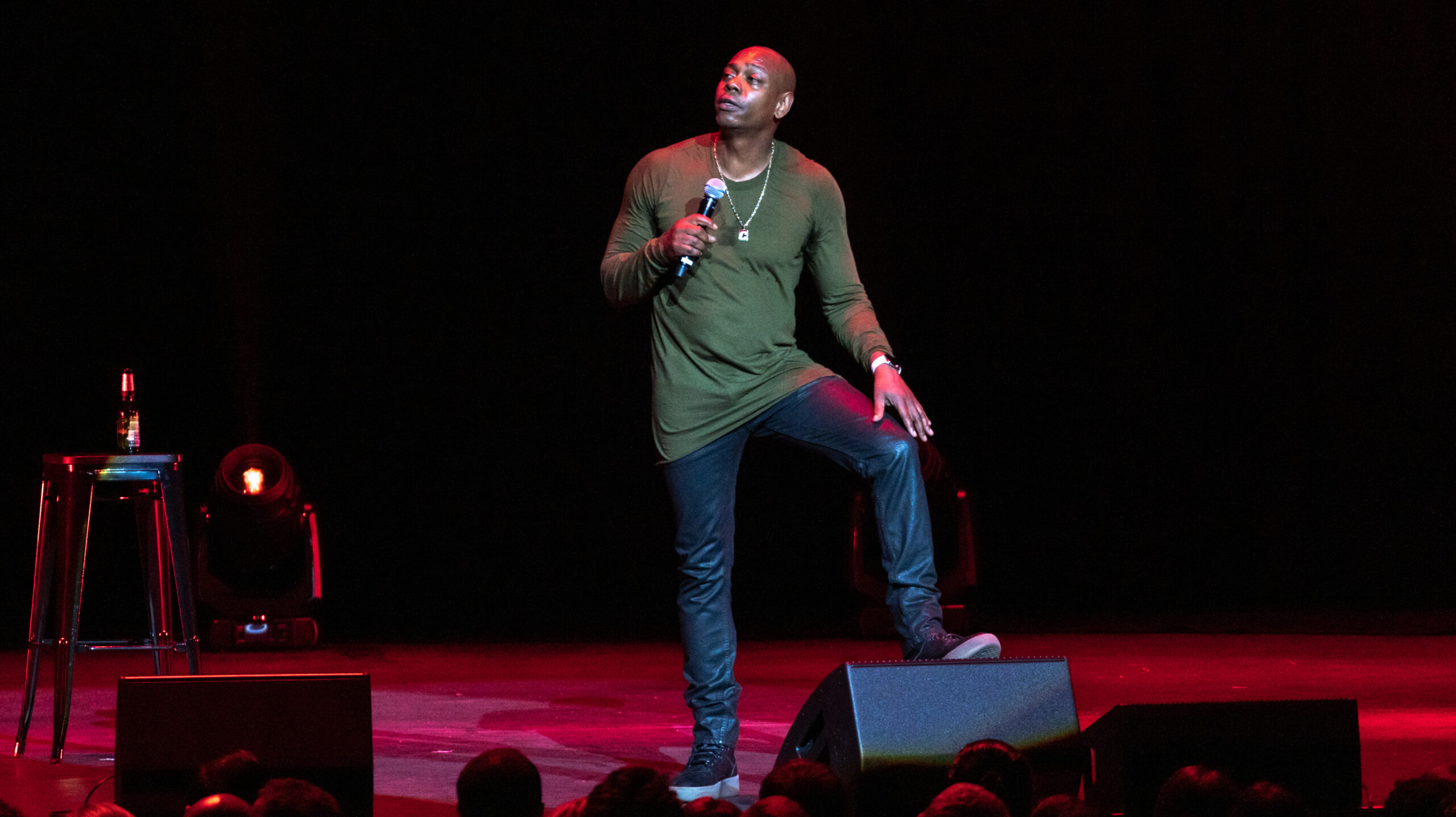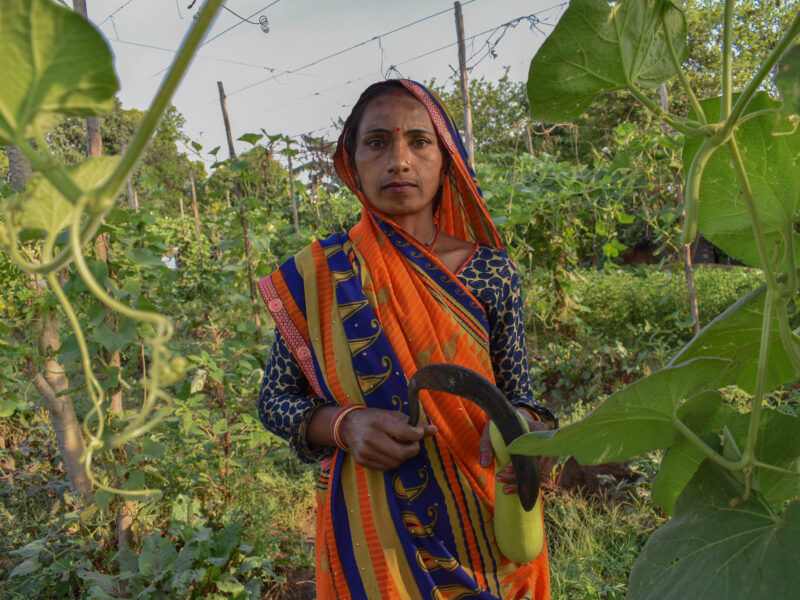Chappelle knew that claiming he had been ‘canceled’ would be the equivalent of dangling red meat in front of the Joe Rogan set.
Last week, Dave Chappelle posted a video to Instagram in which he addressed “the transgender community.” Many of its members, as well as members of several other communities, were upset by “The Closer,” Chappelle’s new Netflix special; and it’s not hard to understand why. In his one-hour monologue, Chappelle compares the genitalia of trans women to plant-derived meat. He proclaims that, like Harry Potter author J.K. Rowling, he’s “Team TERF” (trans-exclusionary radical feminist). He states that “gender is a fact.” He calls women “bitches,” drops the n-word with abandon and pitches a movie called “Space Jews” about powerful aliens who try to conquer the earth. Those are not even the most offensive parts of his act.
The show was met with a yawn from critics. In his review for The New York Times, Jason Zinoman wrote that the “fallout from ‘The Closer’ is in some ways the most interesting thing about the special.” The fallout to which he was referring included a walkout by Netflix employees, one of whom was fired for allegedly leaking internal documents to the press. It also resulted in an online feud between Chappelle and an unlikely adversary: Australian lesbian comedian Hannah Gadsby.
How this situation came about has less to do with Gadsby or Chappelle and more to do with Netflix’s increasingly untenable objective to balance its reputation for unfettered creative freedom with building an inclusive workplace. In response to the widespread criticism coming from within his company, Netflix’s chief content officer Ted Sarandos wrote a long, defensive memo to employees in which he stressed that the streaming platform is committed to airing diverse perspectives: “We are working hard to ensure marginalized communities aren’t defined by a single story. So we have Sex Education, Orange is the New Black, Control Z, Hannah Gadsby and Dave Chappelle all on Netflix.” So there was Gadsby, trotted out as a token for all Netflix employees to see.
Chappelle responded by offering trans people—all of them, everywhere—the opportunity to meet with him and air their grievances, but only under certain conditions, which he laid out in a video clip that is posted to his Instagram account. They couldn’t come unless they had watched “The Closer” in its entirety. Chappelle would determine where and when this meeting would take place. And finally, he said, all prospective attendees “must admit that Hannah Gadsby is not funny.”
You could almost hear Chappelle’s 2.4 million Instagram followers nervously laughing while asking themselves: Who?
Hannah Gadsby, an Australian from a conservative small town in Tasmania, rose to international prominence in 2018 with “Nanette,” a Netflix special that contained atypical standup fare: In it, she described being badly beaten by a homophobic man. She spoke about suffering from mental illness and revealed that because standup comedy demanded constant self-deprecation it was killing her soul. She does an extended set on art history to take down its role in amplifying and perpetuating misogyny—or, as she puts it, “to needle the patriarchy.”
Gadsby’s audience has virtually no overlap with Chappelle’s. He is a straight, Black, American man with a storied reputation for scalding political satire that focuses primarily on race and racism. And yet, his name and Gadsby’s are now linked in an angry controversy.
Once Sarandos’s email was leaked to the press, Gadsby was irate, not so much at Chappelle but at Netflix. She took the unusual step of firing back at her distribution partner, describing the company as an “amoral algorithm cult” in a public letter she posted on Instagram. “Hey Ted Sarandos!” she began, “Just a quick note to let you know that I would prefer if you didn’t drag my name into your mess. Now I have to deal with even more of the hate and anger that Dave Chappelle’s fans like to unleash on me every time Dave gets 20 million dollars to process his emotionally stunted partial world view.”
That could have been the end of Gadsby’s involvement in this narrative. But Chappelle is a guy who never will miss an opportunity to capitalize on controversy. He knew better than anyone that invoking Gadsby in his response would both signal solidarity with Sarandos—”He’s the only one who didn’t cancel me yet,” he said his Instagram video—with the added benefit of dangling more red meat in front of the alpha-male Joe Rogan set. And once again, he was right: Shortly after the video was posted, Gadsby and Chappelle appeared in dozens of headlines together, including a New York Times obituary for another, unrelated, comedian. Right-wing troll Ben Shapiro tweeted, “Admitting that Hannah Gadsby is unfunny shouldn’t just be a precondition for meeting with Dave Chappelle. It should be a precondition for being considered a sentient human.” Chappelle supporters posted attacks to Gadsby’s Instagram account, flooding the comments with insults from Chappelle supporters, just as she predicted.
I decided to watch “The Closer” last week in its entirety, followed by “Nanette.” Neither special could be considered a laugh riot. Many of the jokes in “The Closer” reflect Chappelle’s frustration and bewilderment at society’s having evolved to accommodate diversity in gender and sexuality faster than it has ever risen to deal with racism. It’s an interesting point, but also problematic because the construction of Chappelle’s us-versus-them jokes rest on the fallacy that the Black and LGBTQ communities are mutually exclusive. In reality, as Netflix employee Terra Field pointed out in in a viral Twitter thread, Black trans people are the ones who bear the brunt of the real-world consequences of Chappelle’s jokes: 27 of the 43 trans people who are known to have been murdered in 2021 were Black, according to the Human Rights Campaign.
What I found most fascinating about watching these two specials back-to-back was that both Gadsby and Chappelle tell almost the exact same “joke”—I use this term loosely—about anti-trans violence, though from opposite points of view. In “Nanette,” Gadsby describes taking a beating from a straight man who thought she was hitting on his girlfriend. This story was intentionally unfunny. In “The Closer,” Chappelle brags about beating up a butch lesbian after she took a swing at him because she thought that Chappelle was hitting on her girlfriend. This story was unintentionally unfunny.
While watching “The Closer,” I got the sense that not only did Chappelle anticipate the firestorm over its content, but, lacking any relevant new material, he structured the special—ending with a tragic story of a trans comedian friend who died by suicide—precisely so he would be able to cast himself as a victim of “cancel culture” after it was released. “If this is what being canceled is like, I love it!” he said at a sold-out show at LA’s Hollywood Bowl on October 7, as he received a standing ovation.
In the special, Chappelle once again comes to the defense of people like Kevin Hart, one of the highest grossing movie stars of all time, because he lost his job hosting the Oscars four years ago due to the latter’s homophobic tweets. He defends the Grammy-nominated rapper DaBaby, who made jokes about AIDS at a music festival last summer and was subsequently dropped from Lollapalooza. Now Chappelle believes himself to be among the Canceled because, in the wake of the Netflix-Gadsby furor, he was disinvited to film festivals. Film festivals! Has there ever been a more bougie complaint? The man is a multi-millionaire, widely acknowledged even by his critics as a brilliant comedian, who fills stadiums all over the country.
Dave Chappelle has not been canceled. Awash in fame and money, he has simply lost his edge. In “The Closer,” Chappelle states that this is going to be his last comedy special for a very long time. For this, everyone—including Ted Sarandos—can be grateful.



